Has your business been relying on loans to get by? Are you wondering why your business isn’t growing like you anticipated? Financial Literacy Month is a great time to revisit the basics to help put your business in a better position.
Maribel Garcia is the Associate of Economic Development at the Leadership for Urban Renewal Network (LURN) which provides microloans to small business owners and home-based businesses. We spoke with Garcia about three bad habits she’s seen business owners make and how to correct them.
Bad habit #1: Not separating personal and business accounts
“90% of the borrowers I work with do this,” said Garcia. “You can’t get a true snapshot of your business’ health when accounts are comingled.” It may initially seem convenient for all transactions to come from one account, but you’re setting yourself up for complications when you want to examine the financial health of your business. Banks may charge fees for business accounts, so explore credit unions as an alternative.
Bad habit #2: Poor bookkeeping practices
How will you know if you need to make changes to your business operation if you’re not tracking anything? The weather, construction, changes to the demographics of a community and other factors can impact your livelihood.
Tracking sales and expenses is essential so you can adapt to changes and avoid being caught off guard when tax time comes around.
To understand the financial health of your business, you should track the following at a minimum:
- Sales: What are your monthly sales? How much do your inventory and supplies cost?
- Operating costs: What is the general cost of doing business? Understand what rent and salaries will cost
- Taxes: Keep track of what you will pay back to the state, payroll taxes for employees, sales tax, etc.
“I would also like to see more entrepreneurs paying themselves,” said Garcia. “There’s a small profit at the end of the month that is usually reinvested back into the business…at times business owners don’t have a true idea of what they’re earning.”
Bad habit #3: Falling for high-cost loans
Some small businesses and startups that can’t get approved for loans from mainstream banks have turned to alternative loan sources that are unregulated and predatory.
The definition of a high-cost loan varies, but Garcia believes anything with an interest rate above 40% is excessive. She advises clients that anything over a 100 percent interest is predatory and extremely difficult to pay. Garcia has worked with a number of clients with $2,000+ loans from lenders that have charged $13,000+ in interest.
“Having debt that isn’t healthy starves businesses,” said Garcia. LURN specializes in microlending exclusively for small businesses who haven’t been able to get a loan from banks and other traditional lenders.
High-cost loans are tempting and heavily marketed to the most vulnerable. Many can grant approval within 24 hours, whereas LURN’s microloan underwriting can take up to two weeks. A good lender will only give you a loan you can repay and more importantly one that can help you grow your business and your credit.
Before you consider taking out a loan, evaluate your reasons for needing one. Loans should be used to help your business grow, not for basic needs. “If you’re using it to pay rent, that means you are not covering the basic needs of your business,” said Garcia. “A loan could potentially make things worse.” Having a reserve of savings is strongly recommended.
If you need to shop around for a loan:
- Read the loan contract. If you have questions, ask them. Understand that you may not just be paying the principal and interest. There may be other upfront fees.
- Ask about origination fees (some lenders charge between 1-6% of your loan amount) and any prepayment penalties.
- Ask for the amortization schedule. This gives you a full snapshot of the loan, including total interest that will be paid during the life of the loan.
- Make sure you are asking for the annual interest rate of your loan. Predatory lenders may sell you with a 1% interest rate with fine print of “daily.”
- Some lenders will ask for collateral like your vehicle (for example title loans). Make sure it’s a healthy loan and make sure what you leave as collateral is something you can do without and not crucial to your livelihood.
Leadership for Urban Renewal Network (LURN) is a community development organization whose mission is to bring people together to design, build, and promote sustainable communities that allow people to live their greatest potential. Learn more: lurnnetwork.org.

